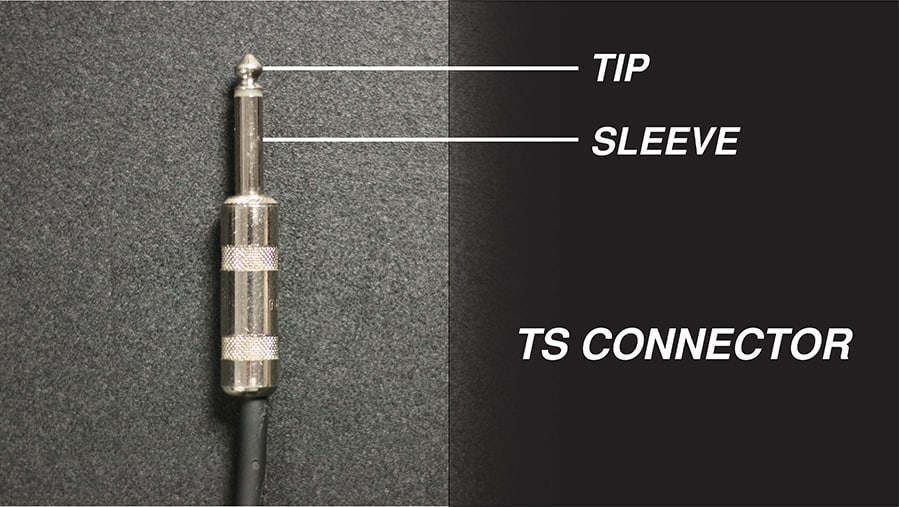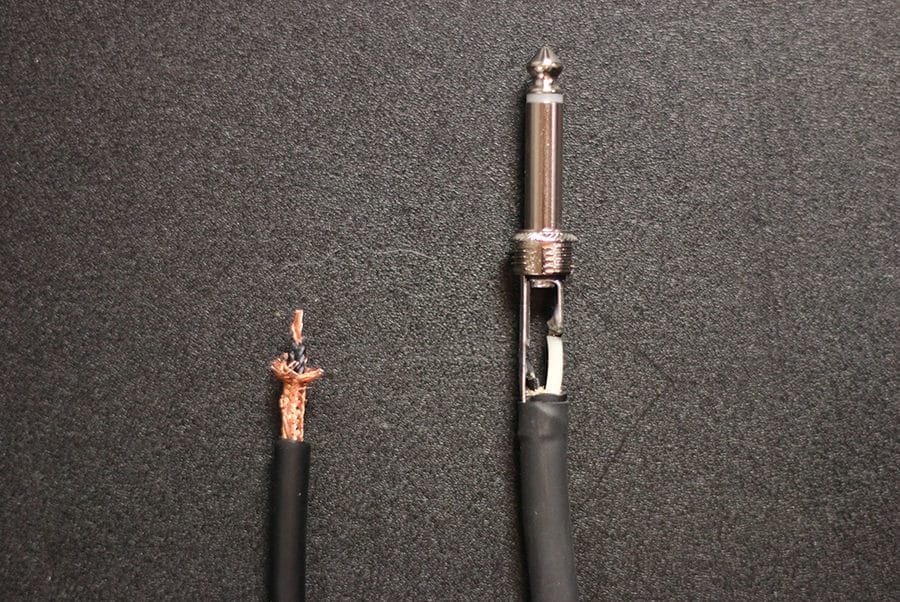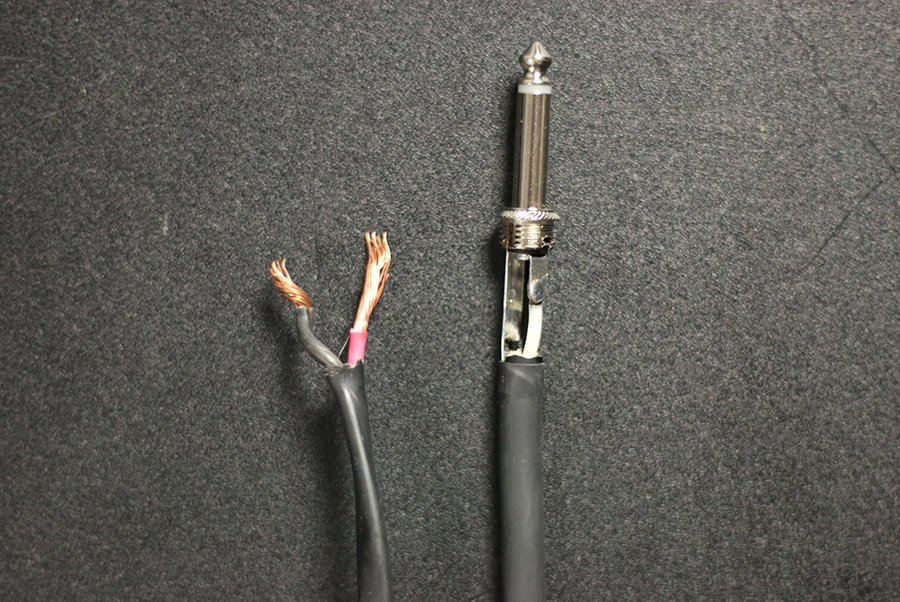Is there a difference between a ¼-inch instrument cable and a ¼-inch speaker cable?
There is a difference between instrument cables and speaker cables. An instrument cable has a signal wire and a shield for carrying instrument level signals. A speaker cable has two identical wires for carrying speaker level signals. Using an instrument cable as a speaker cable can be damage your equipment. Using a speaker cable as an instrument cable will cause excessive noise.
In this post, you’ll learn what the differences are and why it’s so important to use the correct cable.
What Is the Difference Between an Instrument Cable and a Speaker Cable?

Both instrument cables and speaker cables have ¼-inch TS connectors. That means the plugs have a ¼-inch diameter with two sections – a tip, and a sleeve.
If your connector has more than two sections, you are dealing with a different type of cable. Read this article I wrote about different types of 1/4-inch connectors.
Although both of these cables have the same type of connectors, they are designed for very different applications.
If you look closely, you can see that the construction of the cables is slightly different.
The instrument cable contains a signal wire and a shield, while the speaker cable contains two identical wires.
Instrument cables are designed to transmit relatively low-level audio signals from one device to another, while a speaker cable is designed to carry the signal from an amplifier which is strong enough to power a speaker.
Let’s take a closer look at the construction of these cables to see how each cable accomplishes its goal.
1/4-inch Instrument Cable

As I mentioned before, an instrument cable is designed to carry a relatively weak signal, such as the signal from an electric guitar.
When the strings of the guitar vibrate, the pickups create electrical currents that travel along the cable to the guitar amplifier.
Unfortunately, a cable can act as an antenna, picking up unwanted noise along the way. When the signal reaches its destination it’s amplified, but the noise is amplified too. An instrument cable is designed to minimize this noise.
The shield is connected to the sleeve of the TS connector and the signal wire is connected to the tip. Shielding reduces the negative effects of noise caused by other electronic devices.
I recommend getting a high-quality cable like this Rapco Horizon instrument cable. It’s a good company that makes cables to last a long time.
1/4-inch Speaker Cable

An amplifier produces a signal powerful enough to move a speaker and the air that surrounds the speaker. A speaker cable is specifically designed to handle this type of signal.
Unlike an instrument cable, a speaker cable has two identical wires inside.
The size, or gauge, of these wires varies depending on how much current is required to adequately power the speaker.
The signal is already very powerful in comparison to any noise that might be picked up along the length of the cable, so a shield isn’t necessary.
If you need a speaker cable, I recommend going with something like this Rapco Horizon speaker cable. It’s rugged and reliable compared to other cables in its price range.
Using a Speaker Cable as an Instrument Cable
If you use a speaker cable to connect a guitar to an amplifier, you’ll likely end up with a very noisy system, because there is no shield to protect against noise.
In the video at the top of this page, I demonstrate this by connect my guitar to the amplifier using a speaker cable.
In the demonstration, you can hear that there is quite a bit of noise in comparison to the guitar signal. Using an instrument cable results in a much better signal-to-noise ratio.
Using an Instrument Cable as a Speaker Cable
When connecting an amplifier to a speaker, it’s very important to use the correct cable.
In fact, using an instrument cable to connect an amplifier to a speaker can be really dangerous to you and your equipment.
That’s because the cable isn’t designed to carry that much current. Remember – instrument cables are designed for the relatively weak signals produced by guitar pickups.
If you use an instrument cable to power a speaker, it will not only limit the performance of your system, but it might even damage your equipment.
